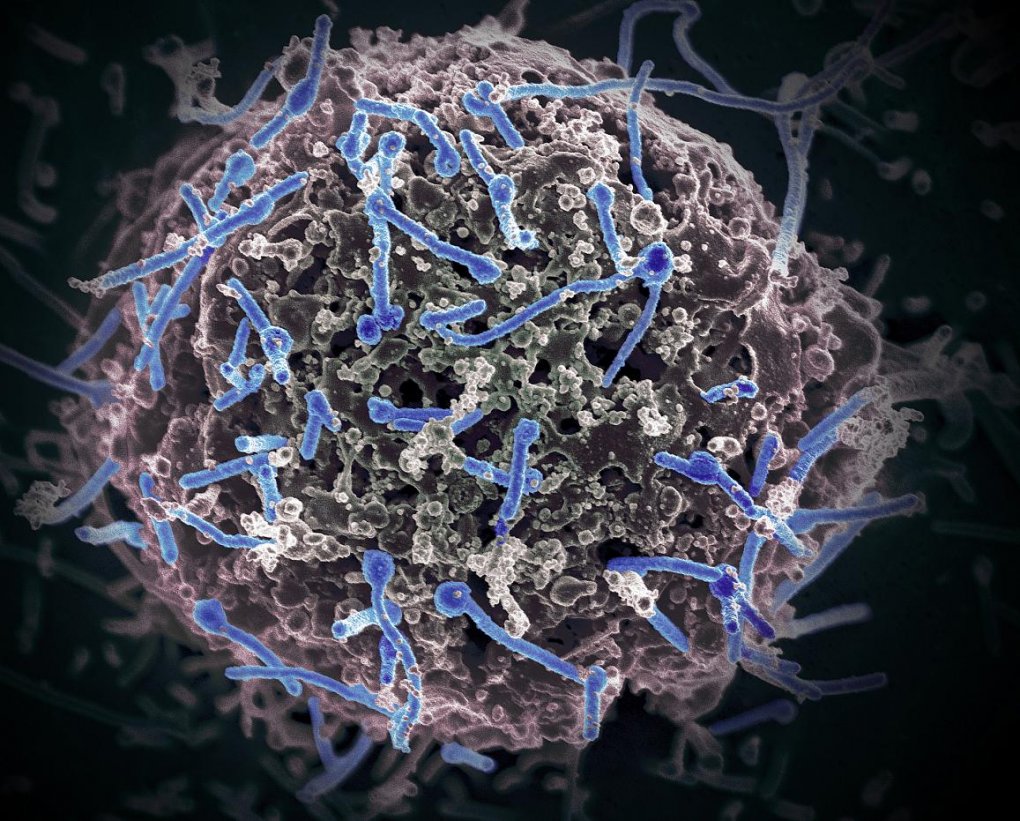NIH study of Ebola patient traces disease progression and recovery
Analysis of daily gene activation in a patient with severe Ebola virus disease cared for at the National Institutes of Health in 2015 found changes in antiviral and immune response genes that pinpointed key transition points in the response to infection. The changes included a marked decline in antiviral responses that correlated with clearance of virus from white blood cells. The analysis also showed that the preponderance of host responses shifted rapidly from activation of genes involved in cell damage and inflammation toward those linked to promotion of cellular and organ repair. This pivot came before the first signs of clinical improvement in the patient, who was admitted to the NIH Clinical Center on day 7 of illness and remained at the hospital for 26 days. Researchers from the NIH’s National Institute of Allergy and Infectious Diseases (NIAID) led the study.
This page was last updated on Friday, January 21, 2022
